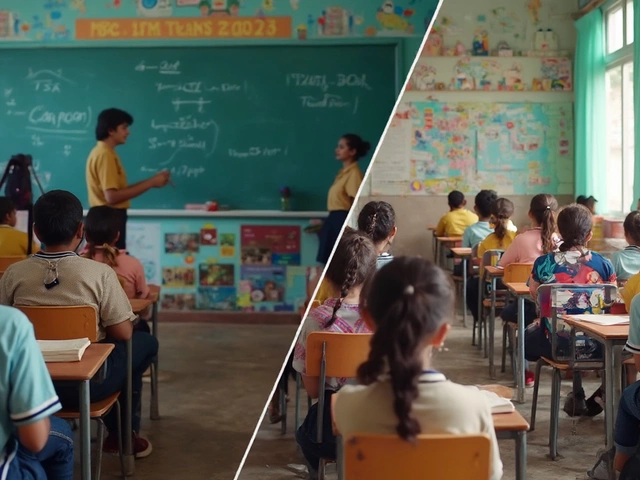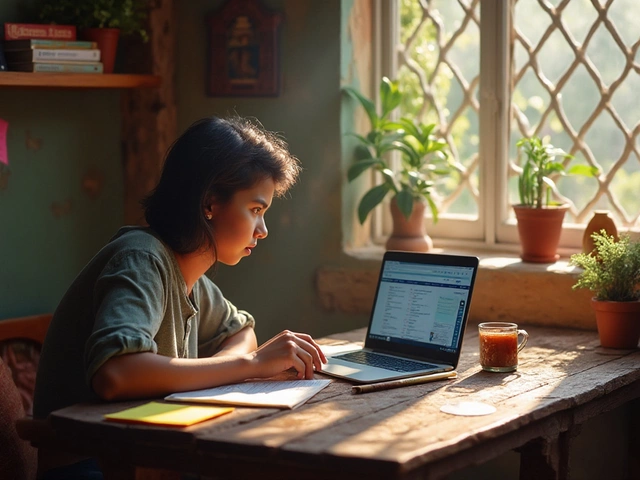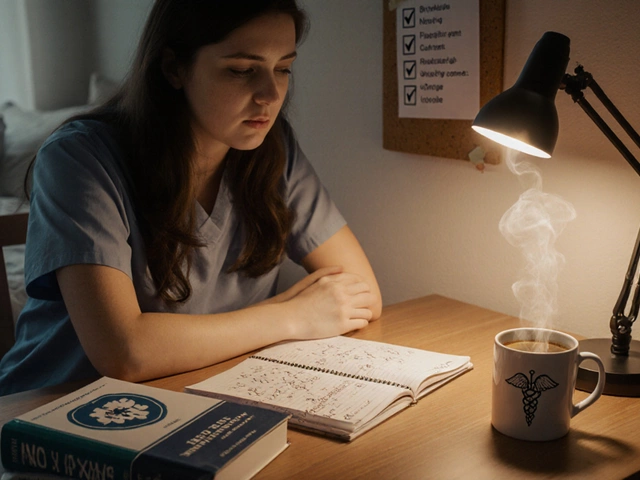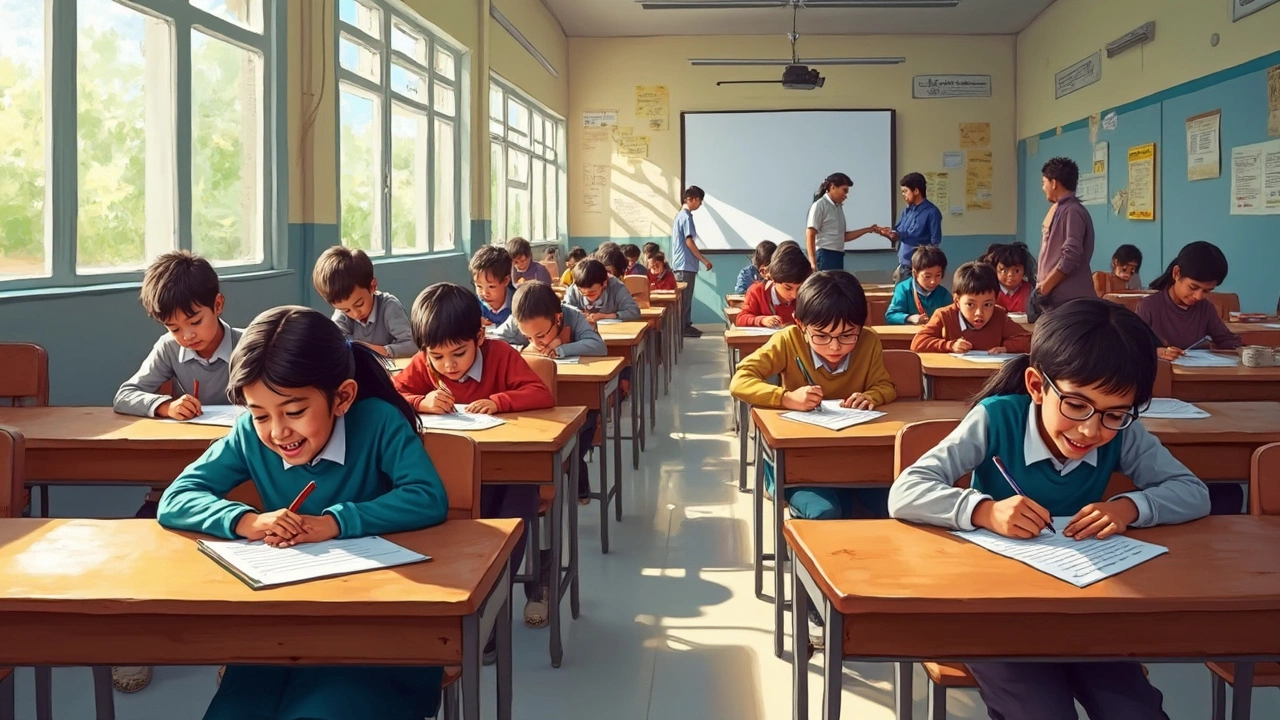
Ever wondered if your friend in a different city is staring at the same CBSE question paper as you on exam day? This is one of those things students and parents get curious about, sometimes even anxious. The short answer: CBSE aims for fairness, but the process has some details most people don’t know.
Knowing how the CBSE exam system works takes away a lot of that stress. There’s a whole science—and a bit of secrecy—in how the papers are set, printed, and distributed. If you’re thinking it’s just a copy-paste job for every corner of India, or that some zones get lucky breaks, the real story might surprise you.
I’m breaking it down in plain English, with some facts you can actually use if you’re getting ready for your own CBSE board exams. Whether you’re prepping from a big city or a small town, there are strategies and tips that make a much bigger impact than worrying about your question paper’s origin.
- How CBSE Sets Question Papers
- Are All CBSE Papers Identical Across India?
- Why the Same or Different Papers Matter
- Practical Tips for CBSE Students
How CBSE Sets Question Papers
The process starts way before exam season. Setting up a CBSE board exam paper isn’t a last-minute thing—it’s months of hushed-up hard work. The CBSE Board has a core panel of experienced teachers and subject experts spread across the country. These folks know the CBSE syllabus inside out, and there are strict do’s and don’ts they have to follow.
Each subject has a ‘question paper setting’ committee. These committees are given clear instructions to cover the expected topics, keep to the marks pattern, and balance the paper so it fits different student abilities. Members never work alone, and they don’t get to discuss questions with outsiders—not even their own colleagues back at school!
CBSE doesn't just set one question paper for each subject. To avoid leaks and to keep things fair, they usually prepare several versions—also called "sets." These are almost identical in structure and difficulty but the order and flavor of the questions get shuffled. Here’s how it typically works:
- Official setters submit a pool of possible questions covering the full year’s syllabus, following the current paper pattern.
- CBSE whittles these down and organizes them by topic, types (like MCQ, short answer), and mark distribution.
- Setters are asked to create a draft paper, followed by moderation where another team checks every question’s accuracy and difficulty.
- The best questions get shuffled into “final” sets. These look different but test the same skills and knowledge.
Printing these papers is a cloak-and-dagger operation. CBSE sends out the final sets to top-secret printing centers. The paper packets are sealed, coded, and shipped straight to exam centers. Everything’s tracked and there’s zero room for funny business.
This whole method protects against leaks (which can still happen, but rarely does), and tries to keep the board exam equally challenging for every student, everywhere. Wondering where those extra versions go? Sometimes an alternate set comes out if there’s a genuine problem—like a last-minute leak or misprint. But for most students, the system works as designed.
| Step | Who’s Involved | Level of Secrecy |
|---|---|---|
| Paper Writing | CBSE-appointed subject teachers | High—independent and confidential |
| Moderation | Separate expert team | Very High—cross-checks for leaks |
| Printing | Authorized secure centers | Ultra High—coded and sealed |
| Distribution | Exam centers via direct shipment | Locked packaging, tracked transit |
The takeaway: if you’re prepping for the CBSE board exam, it’s pointless to chase rumors about leaked questions or shortcuts. Focus on nailing the syllabus, because that’s what those committees have in mind when they build your paper.
Are All CBSE Papers Identical Across India?
Here's the straight-up truth: the CBSE tries to make sure every student faces the same level of challenge, but the way they do it has a few twists. For most board exams, like class 10 and 12, the major subjects often have identical papers all over India. That means a student in Delhi and someone in Kerala usually get the same questions for Maths or Science at the same time (except for rare cases with language papers or region-based options).
But then there are special years when, just to play safe or avoid leaks, CBSE designs a few "sets" of papers. Usually, there are 2 or 3 versions, each with questions mixed around or slightly rephrased. All sets test the same concepts and difficulty but shuffle things up so students in neighboring halls or regions can’t just peek and pass answers. It's like everyone having the same puzzle pieces, just arranged differently.
Take 2018, for example, when there was a paper leak—CBSE had to rework some exams to keep things fair. Since then, they’ve been even more careful. Sometimes, the sets are given out randomly within a single exam center, or across different regions, but the fairness stays the same.
You might wonder how they keep things organized for lakhs of students. Check out these numbers from last year's board exams:
| Year | No. of Students | No. of Exam Centers | No. of Paper Sets (Avg.) |
|---|---|---|---|
| 2023 | 3.9 million | 7,250 | 2-3 |
| 2022 | 3.8 million | 7,150 | 2-3 |
If you’re stressing about someone getting an “easier” set, don’t bother. CBSE goes hard on keeping the difficulty level and topics balanced across all versions. No one’s getting an unfair head start. And since papers are distributed at random, you can't predict which set will land on your desk either.
So, whether you’re sitting for your CBSE board exam in Mumbai, Guwahati, or a remote hill town, you’re playing by the same rulebook. Focus on mastering the syllabus and ignore the myths about “different” question papers. Practice, don't panic—that's what works year after year.
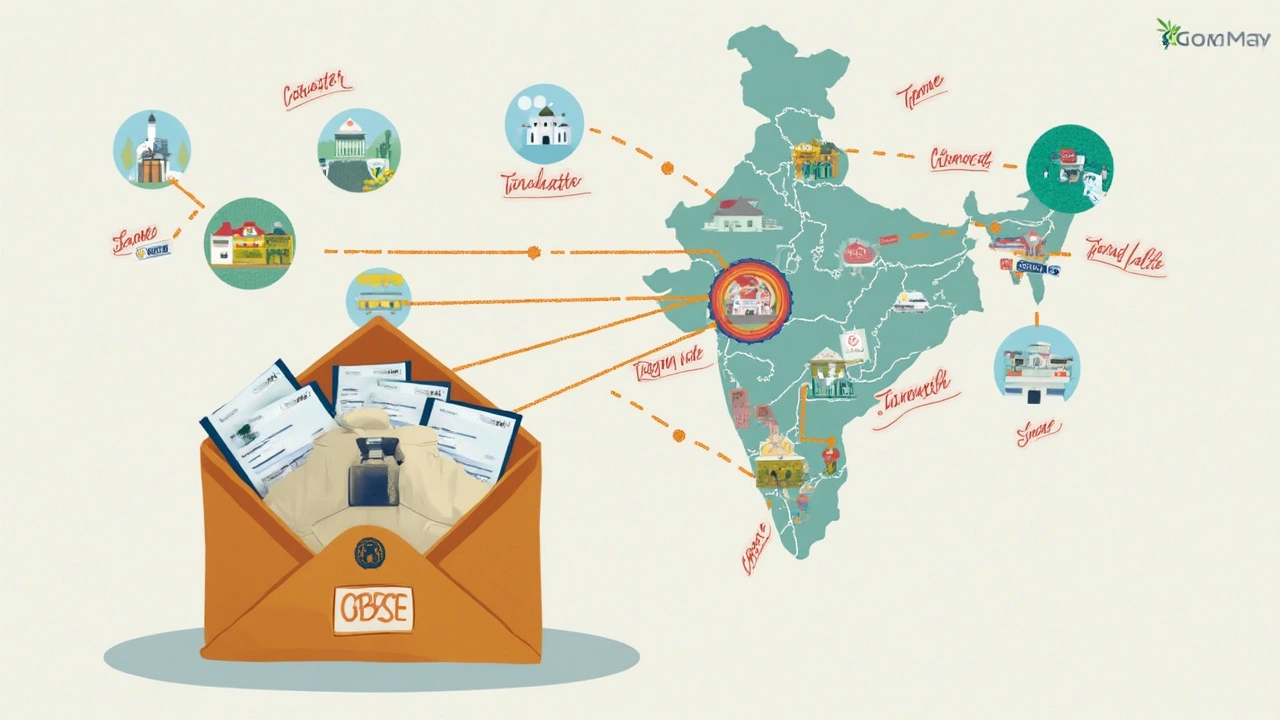
Why the Same or Different Papers Matter
This question pops up every CBSE season: do all students across India really get the same CBSE board exam paper? For most subjects and years, the answer has changed a few times. Until 2017, CBSE often gave different versions of the board exam paper across regions—especially for critical exams like Class 10th and 12th finals. After a few leaks and a lot of student panic, CBSE announced a change. Since 2018, it mostly sticks to a single version of the board exam paper for everyone, except for foreign students who still get a slightly different set.
Why does this even matter? The goal is simple: fairness. If papers are the same everywhere, students in Delhi, Mumbai, Guwahati—basically every CBSE school—all face an equal challenge. This shuts down rumors that some regions have “easier sets” or get inside info through unfair leaks. It also makes it much easier to organize re-exams if leaks ever do happen.
But there’s a real risk: if one set of the same paper leaks anywhere, the entire system is at stake. That means more stress for CBSE to keep papers super secure and sometimes rush out last-minute changes, which can be nerve-wracking for everyone involved. There’s always a balance between paper pattern secrecy and the need for a fair, level playing field.
Here are some points that sum up why the same or different papers matter for students and the CBSE board:
- Fairness: Uniform questions mean everyone’s marks can be compared without doubts about different difficulties.
- Security: More versions mean less damage if one paper leaks, but also more chances for confusion during logistics.
- Board exam confidence: When students know everyone gets the same paper across India, it shuts down endless rumors and distractions right before exams.
- Stress factor: Last-minute changes can happen if a leak is suspected, so students should always follow updates on the official CBSE site.
Here’s a quick summary table with some recent facts, showing how the system changed:
| Year | CBSE Paper Pattern | Regions |
|---|---|---|
| 2016 | Multiple Sets | Different by Zone (East, West, Delhi, etc.) |
| 2018-present | Single Set | Same Across India (except for foreign schools) |
No matter what set you get, your preparation matters far more than any paper version. Focus on strong basics and practice. That’s something you can actually control—unlike what the CBSE does behind the scenes.
Practical Tips for CBSE Students
If you're giving a CBSE board exam this year, don’t let rumors or talk about paper leaks throw you off. Cut through the noise by sticking to proven strategies, because the CBSE pattern and marking scheme genuinely matter way more than guessing the paper’s origin.
- Master the blueprint: Every year, CBSE releases sample papers and marking schemes. Take these seriously—they show question types, weightage by chapter, and even how marks are split within a question. Practicing with these helps you understand exactly what examiners look for.
- Don’t memorize—understand: Most CBSE questions test your grasp of concepts more than your memory. Focus on understanding the logic or the “why” behind each answer; this works way better, especially for application-based questions, which have gotten more common in the last five years.
- Make your own notes: Churning through textbooks is boring and inefficient. Instead, after reading a topic, jot down the main points in your own words. This technique sticks in your mind and is a lifesaver when you revise before exams.
- Prioritize NCERT books: The vast majority of CBSE exam questions—over 80%, according to last year's official analysis—directly or indirectly come from the NCERT textbooks. Fancy guides are fine for extra practice, but don’t skip NCERT basics.
- Simulate real exam conditions: Print out sample or previous year papers, set a timer, and do a full mock test at your desk. This helps you get used to actual pressure and improves speed, accuracy, and time management.
- Avoid last-minute cramming: Rushing through a dozen topics right before the exam barely helps. Sleep well, eat brain-friendly food (fruits, nuts, lots of water), and take short breaks—your brain remembers facts better that way.
If you're wondering about how students across different regions perform, check this:
| Region | Average Pass Percentage (2024) |
|---|---|
| Delhi | 91.2% |
| Chennai | 95.3% |
| Ajmer | 90.5% |
| Panchkula | 92.7% |
This just shows—success in CBSE exams isn’t about geography or paper differences. It’s about preparation. Hit the basics hard, use official sample papers, and keep your cool. The rest will fall into place.
